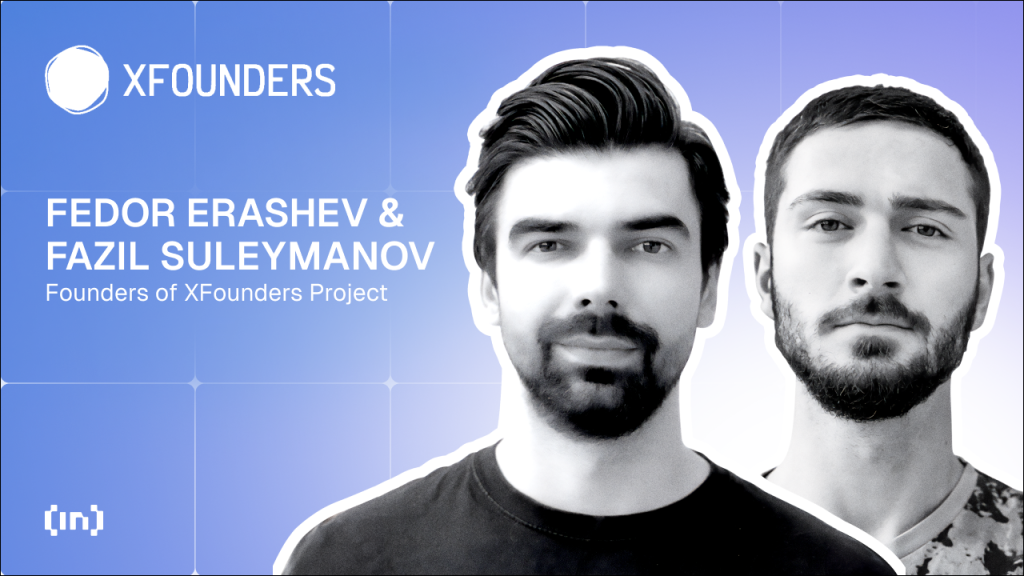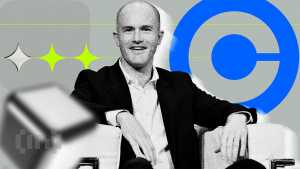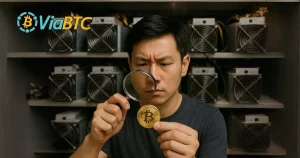How XFounders is Building Web3’s Future, One Startup at a Time

Crypto accelerator XFounders has just concluded its second season, offering a unique blend of traditional startup mentorship and a reality show format.
Supported by key partners such as BeInCrypto and the Solana Foundation, the program brought together 14 Web3 founders for an immersive four-week offline experience. Through mentorship, personal growth, and collaboration, the bootcamp has redefined how Web3 startups are nurtured and developed.
BeInCrypto spoke with XFounders co-founders—Fazil Suleymanov and Fedor Erashev—to gain deeper insights into the event, how it differs from traditional accelerators, and the broader impact it is expected to have on the crypto startup ecosystem.
What motivated you to create a bootcamp specifically for crypto startup founders, and how does it differ from other accelerator programs in the crypto space, particularly with the addition of a reality show format?
Fedor: “I realized that building something in Web3 and understanding how the business operates is quite challenging. Everything is different—marketing, tokenomics, the rules, the types of VCs, and the funding models.
You have to invest a lot of time and money to grasp what’s really happening in Web3. My team and I spent significant resources just to understand the landscape.
There’s a huge gap between acceleration programs, VC funds, and the larger Web3 ecosystems. Big ecosystems like blockchains don’t offer smooth onboarding processes for startups, forcing them to rely heavily on consulting companies, whose services are often very expensive.
At the same time, acceleration programs demand substantial equity or token shares, sometimes up to 12-15%, which I think is extremely high. Fortunately, these rates are starting to decrease, but the imbalance among all these parties is still evident.
When I met Fazil, we decided to launch XFounders to redesign how acceleration programs should work. We started XFounders a few years ago with this vision in mind.”
What impact do you expect the reality show to have on both the participating founders and the audience, and how do you see it contributing to the broader narrative around crypto entrepreneurship?
Fedor: “Why did we choose a reality show as one of the outputs? It’s a great question, and there are two main reasons behind it.
First, during the first season of the XFounders Bootcamp, we spent a month with the founders, and we became like a family. We witnessed so many amazing moments—genuine conversations, exciting breakthroughs—that no one else saw except our team and the founders.
I thought it would be incredible to share what happens behind the scenes with the world. It’s not just about reading articles where someone raises a few million dollars; it’s about showing the real stories behind those achievements. Who are these people? What are they thinking?
This kind of storytelling can inspire the next generation of entrepreneurs, showing them that they can relate to these founders and follow in their footsteps. They might see an engineer doing something extraordinary and think, ‘I can do that too.’
The second reason is that most acceleration or incubation programs offer advice, a bit of funding, or networking opportunities—usually through online platforms. In my opinion, that’s less valuable, especially when it comes to audience building and go-to-market strategies.
In Web3, the go-to-market slide is the most important one in any pitch deck, but most programs don’t help with that. We wanted to offer more than the basics that other programs provide.
Our reality show serves as a go-to-market tool for startups. It’s a bold experiment with high risks, but if we succeed, we could open up a new format for acceleration programs. It’s a tool that allows us to compete with the big names in the industry, and we’re excited to see where it takes us.”
How do you pitch the bootcamp-reality show hybrid concept to investors and mentors, and what has been the most surprising feedback you’ve received so far?
Fazil: “Our pitch is quite simple. We run a four-week offline bootcamp, which provides a fully immersive experience for both founders and sponsors. For our partners, it’s about leads and B2B sales, while for founders, it’s connections, education, potential fundraising, and exposure to a new audience through the reality show.
We have two business models: one for B2B leads, like conferences and sponsorship deals, and the other focused on portfolio startups. We are founder-friendly, charging up to 2% from startups, and we carefully consider tokenomics to ensure minimal dilution for them.
When it comes to mentors, we use the same pitch as we do for sponsors and investors. We describe the value we provide through our comprehensive program, which includes modules on marketing, product development, and more. We’ve built strong expertise in business development, so bringing in experts isn’t a challenge. We have a funnel of over a thousand experts, and after narrowing it down, we invite the top ten to join our bootcamp.
Looking back at our first season, it was tough at the start. We were unknown, had language barriers, and had to pitch to people from Mastercard, AWS, and others. But we had something inside that helped us attract big names, like Stacey-Ann Pearson from AWS and Oliver from Mastercard, who believed in our idea. Now, after our pilot season and with content and success stories—like one startup raising $2 million—it’s much easier to pitch.
This year, having Solana as a title sponsor and BeInCrypto as the media sponsor, along with the strong brands and faces of our experts, has added credibility. Our program director, Cem Arcan, who joined us in May, also brought significant credibility with his background from Circle and Techstars.”
Given the rapid pace of innovation in the crypto industry, how does the bootcamp curriculum help participants address both current challenges and future trends in the market?
Fazil: “We work with startups. If this year’s trend is DeFi, we’ll focus on collecting DeFi projects. If next year’s trend is metaverses, we’ll shift to collecting metaverse startups.
We have a mechanism that helps founders build sustainable business models. It works for Web3, Web2, and AI. The core of our philosophy is focusing on business fundamentals.
Right now, we’re in the Web3 space, so we’ve added a lot of specific topics and brought in 100% Web3 experts for this bootcamp. Our bootcamp curriculum is versatile and flexible.”
Fedor: “The idea of this bootcamp is not just to provide information or text on topics, but to build relationships, which is crucial. I think this is one of the most valuable advantages.
At conferences, you spend a few days, collect 500 contacts, and then try to reach out to those people again, which is often difficult. It turns into a typical business development task. Here at XFounders, we’ve created an environment where deep relationships are built, and these relationships can be used year-round, even years later.
After one week, the founders become friends, and after three or four weeks, it’s like a family. Just imagine having a family of amazing startups and speakers who can support you anytime, anywhere. They open their networks, share their interests, and even provide investments.
This is the secret sauce that will help founders grow, even when market conditions are tough. They can cross-promote, exchange audiences, share strategies, and even swap employees when needed. This level of support will help founders navigate any market condition.”
Looking ahead, what are your plans to scale the XFounders initiative and expand beyond this first season of the reality show?
Fazil: “Our expectation for next year is to provide not just one bootcamp, but four bootcamps, so essentially a bootcamp every quarter. Our main goal is also to establish a long-term contract with Solana. We hope that when Solana team members attend and see the quality of our event firsthand, it will solidify that partnership.
As for the next bootcamp, I don’t anticipate it being much different. We’ll have a title sponsor and several other sponsors supporting us, with around 10 to 15 startups participating. We might hold the next bootcamp here in Bali again, likely in February or March, but the format will remain largely the same.”
Fedor: “In addition to our accelerator program, we’re at a stage where we’re ready to scale. We’ve established the XFounders production company, which is responsible for the distribution of all content created exclusively within XFounders.
Our next big step is launching a VC fund to invest in our startup funnel. It’s crucial for us to not only provide a network and media coverage but also to put ‘skin in the game’ by investing directly.
We’re working on finalizing commitments, and we’ve already secured $3 million. Hopefully, by the first or second quarter of next year, we’ll have the structure in place to begin investing.
Looking further into the future, we’re planning to open our first hub—possibly in Bali—where founders can live and work together for extended periods. It’s like having year-round bootcamps. Just imagine how exciting that will be.”
What’s Next for XFounders?
As the official media sponsor of XFounders, BeInCrypto invites you to witness the journey of the next generation of Web3 founders in the XFounders Startup Warriors Show, premiering this fall. This unique program will showcase the participants’ real challenges, breakthroughs, and stories of innovation.
In the meantime, check out the teaser available online for a sneak peek into what’s to come.
For more updates and details, visit the official website, and click the links below to explore additional insights from XFounders’ participants and mentors.
Disclaimer
In compliance with the Trust Project guidelines, this guest expert article presents the author’s perspective and may not necessarily reflect the views of BeInCrypto. BeInCrypto remains committed to transparent reporting and upholding the highest standards of journalism. Readers are advised to verify information independently and consult with a professional before making decisions based on this content. Please note that our Terms and Conditions, Privacy Policy, and Disclaimers have been updated.













